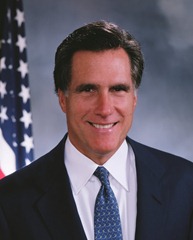
Trump Is His Own Worst Enemy When It Comes To His Taxes
The New York Times has written an article claiming that Donald Trump paid little or no income tax for many years. Mr. Trump denies paying so little but won’t release his returns. The NY Times will not release its data to protect its source.
Voters can decide whom to believe, but one fact to note is that the story doesn’t assert illegal behavior. The IRS presumably signed off on the Trump returns, except in one case in which it is disputing a $72.9 million deduction claimed by Mr. Trump. This is a fight rich people have with the IRS all the time, often ending in Tax Court.
The report makes much of a deduction Mr. Trump took for business consulting fees that match payments his daughter Ivanka reported in separate filings. There may be legitimate reasons for those fee payments, and Ms. Trump ought to clear the matter up. Paying your adult offspring is not illegal – in fact, it is a good practice. This point should probably be dropped on the social media hate frenzy.
Also, it appears to be a big scandal that Trump paid a hairstylist during his reality TV days. Give me a break. Have you seen this guy’s hair? It would take a wizard to make it look decent. BTW, if you are going to make fun of Trump’s hair, please be honest and make fun of “comb over” Joe Biden also – yes, I am old enough to remember him as being bald.
Is it a scandal if Mr. Trump legally exploited the tax code’s treatment of chronic business losses to pay little tax? Hardly. Mr. Trump admitted this himself in a 2016 debate so there is no news in the NYTimes article – he already told us that he didn’t pay much in personal income taxes. Congress littered the code with loopholes aimed at assisting real-estate businesses, among others. Democrat and Republican elected officials write a tax code to please their corporate donors and then selectively attack CEOs or businesses that use the loopholes.
Here is a hint: if you are a business leader that is going to run for office and challenge the elected elite then you are not allowed to use the tax code to your advantage. But it is okay if you are simply going to take that tax-advantaged and donate to the elected elite. This is especially okay if you are donating to Democrat elected officials.
The story also claims that Mr. Trump’s empire is under financial stress and rising debt. This may be true, but the reporters can’t seem to decide if Mr. Trump is a shark exploiting the White House for personal gain or a sap who is bleeding cash while in office. Brilliant or bumpkin? Make up your mind. Many of Trump’s supporters cite his lack of tax burden as part of the reason they support him saying that he has a brilliant business mind. His enemies would do best to stick to one narrative.
The Times says it will have more such stories in the coming days, and who can doubt it? The press and most of official Washington are all-in to defeat Mr. Trump. I wonder if the FBI is doing a repeat and trying to help the Democrats as well.
Trump has made it easier for his opponents, as he often does. He danced his way through the 2016 campaign with promises to release his returns followed by claims that he couldn’t do so because of an audit. Many of his supporters advised him to do it in the public interest, but there’s no legal obligation for a candidate to release his taxes.
Trump could have controlled the political narrative by releasing his tax returns on his terms and timetable. If he would have done it soon after his election, this story would have died a slow death a long time ago. Now his opponents will do it. As in the past, Trump is his own worst adviser.
Many of the ideas in this story were sourced from this WSJ opinion article.




